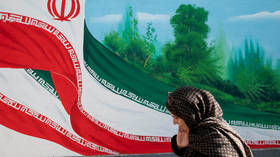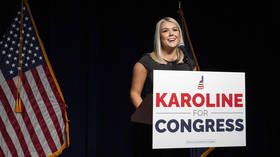‘Hate-filled left on display’: BBC historian rejoices over ‘rich white men’ dying from pestilence

A BBC contributor has lit a powder keg of social media rage after reveling in the fact that wealthy, middle-aged white men died in higher numbers during an epidemic that hit Britain in the 16th century.
Louise Raw, who describes herself as “resident historian on BBC Radio London,” announced on Twitter that she had uncovered “virulent class prejudice still rife in Britain” while researching the Sweating Sickness of 1528.
The mysterious disease affected both the very rich and very poor, but Raw took issue with a commentator who described the less-wealthy victims as “idle fellows.”
Responding to her historical analysis, one person mused how wonderful it would be if pestilence could “be a bit more selective this time and leave us idle fellows alone” – a proposition which Raw apparently found quite appetizing.
It actually killed very rich, white middle aged men in greater number than anyone else! Which is obviously terrible 😉
— Dr Louise Raw (@LouiseRawAuthor) May 22, 2020
“It actually killed very rich, white middle aged men in greater number than anyone else! Which is obviously terrible,” she replied sarcastically, including a winking smiley face emoji.
Her bold remarks about the ills of “class prejudice” provoked a virtual call-to-arms on Twitter. One comment marveled at how the BBC associates itself with someone who openly applauds death among certain segments of society.
Mmm and if anyone had put a knowing happy 😉 emoji in front of the suggestion that any other group had died as a result of pestilence, disease, famine or war they wouldn't be employed by our embarrassing Orwellian state broadcaster. But I guess you'll keep your cushy job!
— David McCarter (@davidashleywall) May 22, 2020
Others lashed out at Raw for spreading “hate” and purportedly showing the true face of the BBC.
The hate-filled Left on display. And we know how it ends, every time they gain power. Their wishes of "killing" come true, beyond our wildest nightmares. 💀🔥
— Steven Mix 😷💖🇺🇸 💎 (@stevenrmix) May 22, 2020
With the rise of “cancel culture,” comments deemed politically incorrect or offensive have damaged or sometimes even ended the careers of academics, entertainers and other people in the public spotlight.
However, it appears that Raw has been able to simply ignore her critics without any negative repercussions.
Like this story? Share it with a friend!














